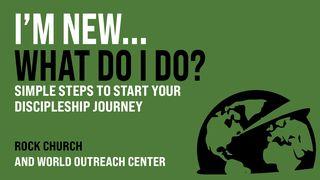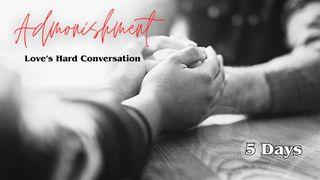Breakthrough Change With Boris JoaquinSample

Breakthrough Relationships.
Thinking about your thinking should lead you to think about your relationships. As you look at your current challenges, how much of these come from your relationships? What kind of growth do you need to better them?
Give yourself some room to "repack" your relationships -- evaluate what relationships are good and bad for your growth. What relationships take up a lot of time, but are not the kinds of relationships you desire? Which relationships are toxic and counterproductive?
Not all your relationships should be deep and meaningful. You need some dysfunctional or wacky friends as well. They can be some of your favorite people, although they might not be the ones you call during a crisis. The ones that you need to unpack from your life are some people who are pursuing activities in life that are not consistent with your values and may even be destructive.
On the other hand, maybe what you need is to restore some of your relationships. As you take stock of your relationships, consider your thinking behind your dynamics. If there is conflict, examine your ways and take responsibility for your share in it. Blame no one. Own up to your faults. When you do, you might save and grow some of those relationships that you intend to keep.
Next, examine how well you listen. Our ability to listen brings so much power into restoring relationships. The quality of our thinking is directly affected by our ability to listen. There is a lot of wisdom and benefit in responding to people instead of reacting to them, and how we listen can either empower or limit our ability to respond to them. Carefully consider how your assumptions and preconceived notions that might be giving rise to bias or prejudices that keep you from hearing and really "seeing" people. Learn to ask questions and listen so you can respond to their needs.
In the end, we always have to constantly ask ourselves, "Do I really want to maintain and strengthen this relationship?"
How do we minimize or solve a conflict?
- Pause and Listen. Proverbs 12:18 says that “the words of the reckless pierce like swords, but the tongue of the wise brings healing.” The question is how can our tongue bring healing? The answer is simple, use your ears first before your tongue—pause and listen to the other person. Our usual tendency when confronted is to defend ourselves. This is normal because of our survival instincts but we have to go beyond our natural tendencies if we want to minimize and solve a conflict.
How can we pause and listen? When a person tells you a hurtful thing, do not react immediately. Delay your reaction. Count to ten if you must. Pray and take a deep breathe. Remind yourself that you are not enemies but allies.
- Listen to understand. Ask yourselves these questions: Why is he saying those things? Where is this person coming from? Why is he reacting that way? What was my role in it?
When you choose to listen to the other person and just allow him to vent out all his frustrations and disappointments at you, he will surely get tired of talking and he will eventually stop. When he’s done, notice his emotions, it will surely subside. And when this happens, it’s now time for you to talk.
- Ask powerful questions. When I say talk, do not defend yourself by throwing negative statements to the other person. Our natural tendency is to reason out. Instead, try to ask powerful questions.
You can try asking questions like: What was the reason behind your disappointment? What was the concern about? What was my role in it? How can we solve this together? How can we help each other improve? How can we prevent this problem from happening again?
Asking these questions can lessen the defensiveness of the other person and s/he will be able to think clearly and objectively. On your part, you have to hold yourself from reacting and listen genuinely to the other person. Remind yourself that too much emotions lead to clouded judgment which will eventually lead to unresolved conflict.
In the end, if we really want to solve or lessen conflict, we always have to constantly ask ourselves—do I want to maintain and strengthen this relationship with the other person? Conflicts are messy because when unresolved, it leads to broken relationships. If you don’t want that, now is your time to practice to pause, listen, understand, and ask questions. Again, conflicts are messy but we can always choose to have breakthroughs through good conversations.
About this Plan

With a redefined future, it became clear that our lives need a re-vision and a reset. To paraphrase the bumper sticker, “stuff happen”. We cannot avoid the stuff of life, but we can change the way we respond to it. We all need to be visionary leaders who remain on purpose, self-reliant, resourceful. Thriving, not just surviving.
More
Related plans

Becoming Love: If We Start at Finish, Where Do We End? (Part 3)

Small Wonder: A Christmas Devotional Journey

Keeping Godly Relationships

Wake Up Your Faith

I'm New! What Do I Do?

Finding Your Way Back to God

Foundation First: Building Habits That Actually Last

Admonishment: Love’s Hard Conversation

Team C4C Testimonies
